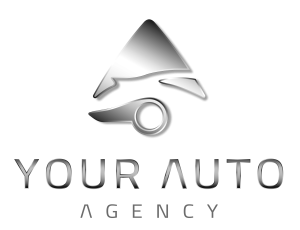
Financing a car isn’t just about finding the lowest repayments or interest rates—there’s a bit more to it. With so many options available, it’s important to understand how things like personalised rates, repayment structures, and early payout policies work. Whether you’re buying for personal use or business, getting the right advice up front will help you avoid surprises down the road. Here are the three key things to keep in mind when financing a vehicle.
1. Interest Rates and Repayment Plans Are Personalised
These days, interest rates are tailored to each person based on factors like credit history, loan amount, and car type. So, what works for one person might not be the best fit for another. This means it’s essential to compare options carefully to find a loan that suits your situation.
When it comes to repayments, the loan structure matters a lot too. For businesses, a balloon payment—where a large portion of the loan is paid at the end—can make sense. This setup helps with cash flow and allows for tax-friendly car upgrades every few years.
On the other hand, personal buyers often prefer to own their cars outright at the end of the loan term. In this case, it’s better to opt for a plan with steady repayments and no balloon payments, making it easier to budget without surprises at the finish line.
2. Early Payout Fees: Are You Planning to Pay Off Early?
If you plan to pay off your loan sooner, it’s worth checking whether the lender charges early payout fees. Some people choose longer loan terms to keep monthly payments low but still aim to pay it off early. If that’s your plan, make sure you won’t be hit with penalties for doing so.
A loan with flexible payment options—like the ability to make extra payments without fees—can give you the freedom to stay ahead of schedule if your financial situation improves. It’s these small details that can make a big difference in the long run.
3. Aligning Your Loan with Your Needs
Everyone has different goals when it comes to car ownership, and the right loan should reflect that. For business owners who need to upgrade their vehicles regularly, a balloon payment at the end of the loan makes sense. But it’s crucial that the final payment matches the car’s value at that time—otherwise, you might end up out of pocket.
On the flip side, personal buyers who plan to keep their cars for the long haul will want a different approach. A simple repayment plan with no balloon payment means no surprises at the end. It’s also important to factor in how much you’ll be driving. If you’re racking up more kilometres than expected, the car might not hold its value as well, which could affect your trade-in or resale plans.
Get Expert Help from a Broker
Navigating the ins and outs of car finance can be tricky. This is where sitting down with a broker can really help. They’ll take the time to understand your needs, answer questions like:
- Do you want to own the car outright or trade it in later?
- Will you pay off the loan early, and how will that affect you?
- Which lenders offer the best deals based on your situation?
A good broker will match you with a lender that suits your goals—whether that’s a loan without balloon payments or one with low early payout fees. They’ll also help you avoid common pitfalls, like hidden fees or loans that don’t align with how you plan to use the car.
Final Thoughts
When financing a car, it’s about more than just the interest rate. Understanding the repayment structure, early payout options, and loan flexibility will make a big difference in how smoothly things go. Whether you’re a business owner looking to upgrade regularly or a personal buyer planning to keep your car long-term, the right loan will fit your goals.
Getting the right advice early on will ensure you drive away confident that you’ve made the best financial choice for your future.
